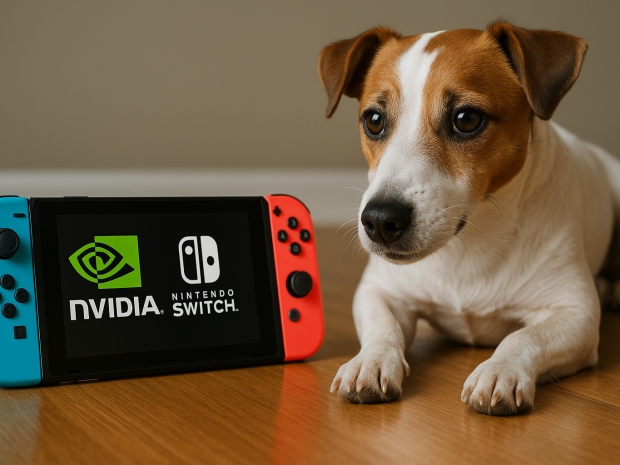In a video pumped out by the Japanese gaming outfit, Huang banged on about three breakthroughs: proper hardware-based ray tracing, support for high dynamic range, and a revamped architecture that plays nicely with older games.
"It's unlike anything we've built before," he said.
He claimed the chip had some fancy artificial intelligence silicon that can sharpen, animate and juice up gameplay on the fly. He didn't spill any technical beans but was happy to boast the chip offers "the most advanced graphics ever in a mobile device."
Huang took a moment to tip his hat to the late Nintendo CEO Satoru Iwata, crediting him for the hybrid console idea. "Switch 2 is more than a new console. It's a new chapter worthy of Iwata Son's vision," Huang said.
The chip is the latest fruit of a decade-long bromance between Nvidia and Nintendo, which started in 2015 when the latter picked an early Tegra X1 SoC prototype for the original Switch. Huang always seemed confident that Nintendo's loyalty would mean a long-term gig.
That original custom chip powered every one of the 132 million Switch units flogged since 2017 and made the hybrid design possible. Huang once said Nvidia sank "several hundred engineering years" into tailoring the SoC and logic board to Nintendo's tastes. Nintendo then nabbed the IP and used it to shape its future gear.
Tegra revenues are no longer broken out, but in fiscal 2020, the unit pulled in $1.45 billion (€1.35 billion), about 13 per cent of Nvidia's overall take.
After Huang's grandstanding, Nvidia shares ticked up three per cent on Tuesday. They've climbed four per cent since the start of the year and 24 per cent over the past 12 months. Nintendo stock was more modest, edging up 0.1 per cent but still marking a 40 per cent jump this year and 50 per cent over the past 12 months, according to Investing.com.
Meanwhile, Nvidia has swaggered past Microsoft to become the most valuable company on the planet as of 3 June, retaking the crown it lost in January. The chip firm ended the trading day worth $3.45 trillion (€3.2 trillion), narrowly nudging out Microsoft's $3.44 trillion (€3.19 trillion).
Demand for AI chips, especially from the likes of OpenAI, has fuelled Nvidia's comeback. Even with US export curbs and the usual geopolitical wobbles, the outfit has added $1 trillion (€925 billion) to its valuation in just two months.
If Huang's hype is on the money, Switch 2 could be a proper showcase not just for Nintendo but also for Job's Mob's clout in gaming and AI alike.




